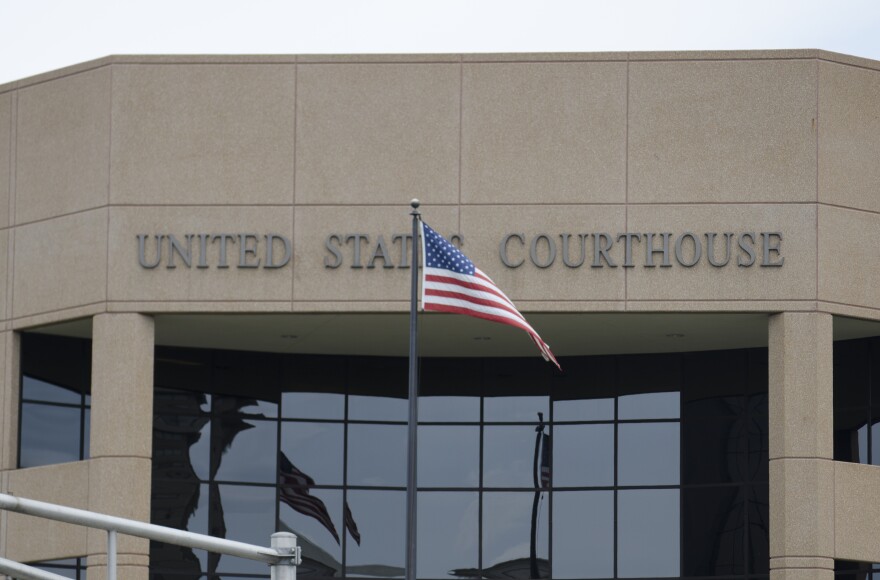The American Civil Liberties Union of Missouri is awaiting a reply from the city of Springfield after filing suit against them last month on its indecent exposure ordinance. Since then, there’s been much talk about the suit, and controversy has emerged within the city council. We wrote about how the ordinance was being interpreted last month. Now, here’s a briefing on the lawsuit itself.
Free the Nipple vs. City of Springfield, filed October 26th, came just six weeks after the adoption of Council Bill 2015-227.
ACLU filed the lawsuit on behalf of Free the Nipple, an organization of Springfield residents promoting equality. It also is seeking a preliminary injunction to pause any enforcement of the ordinance while the lawsuit continues.
Tony Rothert is the legal director of the ACLU of Missouri.
“Certainly when the movement, the Free the Nipple movement, started percolating in the city of Springfield we were watching that. And when the city enacted new speech restrictions in retaliation for the protests we were interested in that too and aware of it.”
That’s not unusual for the ACLU; which Rothert says monitors women’s equity and free speech issues and will reach out to those who need the help.
“Shortly thereafter we got into contact with several people involved with the movement, and we were able to put together this lawsuit,” he says.
The complaint alleges Springfield’s indecency ordinance violates the US Constitution’s First Amendment Free Speech clause and the Due Process and Equal Protection clause of the Fourteenth Amendment.
The ACLU believes the ordinance is too vague. The plaintiffs have cited issues with confusion over whether they would be in violation of the ordinance in certain situations like protesting and breastfeeding.
The lawsuit also states the ordinance conflicts with a Missouri statute protecting breastfeeding. Plaintiffs Jessica Lawson and Amber Hutchison worry the breastfeeding of their children over the age of 1 and 2, respectively, will be problematic as the ordinance only protects the breast-feeding of an infant. The suit claims that it is widely understood that an infant is between the ages of 0-12 months.
The plaintiffs also believe the reasoning given by the city does not defend against strict scrutiny, that the law is not narrowly tailored, nor does it provide alternatives for adequate expression.According to the suit, the reasons from the city provided as understood by the plaintiffs are as follows:
A. The showing of female breasts undermine the mission of being family friendly;
B. Protests might have underage participants intentionally or accidentally disseminating child pornography; and
C. The city has an interest in ensuring that protests do not offend residents.
Conversely, the council bill eliminated restrictions on men’s genitals when it struck the original ordinance included in the definition of nudity as "showing of covered male genitals in a discernibly turgid state.” Free the Nipple Campaign feels this is contrary to the cited goals of the ordinance.
The lawsuit has since stirred up some drama among city government officials with Councilwoman Christi Fulnecky accusing Mayor Bob Stephens of knowing about the lawsuit before everyone else and possibly encouraging it.
The mayor had sent a letter to the Plans and Policies Committee asking to review the new indecent exposure law on the same day the ACLU filed suit against the city.
Stephens defended himself against Fulnecky’s allegations after a press conference on October 30th.
“Anybody who followed the news knew it [the lawsuit] was a possibility and that’s what she’s basing it on. She based it on a couple of posts on Facebook, and one of the ladies that she was quoting came back yesterday and posted and had a line in there that said I have never talked to the mayor either online or in person, so her accusations have pretty much been discredited.”
The mayor’s office and city attorney are declining to comment on the lawsuit while it is in litigation.
The press conference in late October was for the purpose of addressing another problem that has arisen. Fulnecky was found to have not paid a business licensing fee which could disqualify her from serving on council. She’s has called those allegations retaliation against her.
The issue is causing the 5-4 passage of the indecent exposure ordinance – for which Fulnecky was a supporter - to fall into question. Tony Rother says the ACLU would normally not concern itself with such an issue.
"We are interested in people’s individual Constitutional rights. But we do have clients in this case so we are exploring all legal avenues to get redress for them and that may be one,” says Rothert.
The lawsuit might reach a political resolution to avoid the long process of going to court. The ACLU wishes to see a gender neutral ordinance introduced.
“We’ve identified some cities that have gender neutral ordinances, and we are putting together something to present to the city on that.”
In the meantime, the plaintiffs are waiting to hear back from the City of Springfield. The city has until Nov. 17 to reply. In addition, the preliminary injunction could take up to a few months for a judge to decide.





